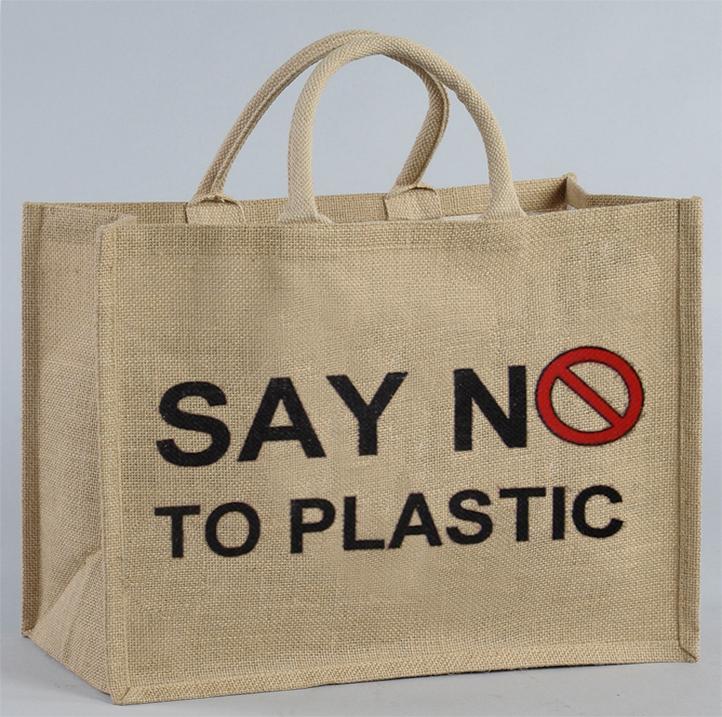There are numerous reusable bag options on the market. Reusable and eco-friendly shopping bags are becoming the norm as more countries and states ban plastic supermarket bags. They do, however, differ on several criteria. Their environmental impact is simply one of several. Let’s talk about the most common reusable shopping bag kinds, materials, environmental impact, benefits, drawbacks, and more today!
Fabric vs. Paper vs. Plastic Bags
Plastic bags are a direct threat to our planet. They clutter and smother life wherever they land, whether on the streets, in drainage systems, or rivers, lakes, parks, and other natural environments.
Here are some things to consider before buying reusable bags-:
- One of the first things you should understand is that all bags, regardless of type, have an environmental impact. The goal of reusable bags is for people to use them enough times that the products become environmentally friendly.
- When discussing the environmental impact of a bag, we should not only evaluate its end-of-life condition, but also its full lifecycle, beginning with production, transportation, and so on.
- Another difficulty is that not all bags, even those made of environmentally friendly materials, are recyclable. Some of them contain a variety of materials, making recycling costly, time-consuming, and industrially complex.
- Any item’s recycling performance should take into account the item’s deconstruction, as some of its components may still wind up in a landfill.
Let us begin by talking about reusable shopping bags made of cotton, other natural fibres, and nonwoven polypropylene.
Cotton and canvas bags, two of the most popular reusable bags for shopping, leisure, and even sustainable and ethical fashion, have several advantages. However, before we go into them in-depth, let’s take a deeper look at cotton, which presents some environmental concerns.
- Cotton is a renewable crop and the world’s most popular fabric.
- Cotton, on the other hand, is one of the most contentious materials when it comes to reusable bags due to its cultivation, manufacturing, and transportation.
- Cotton necessitates a large amount of water: approximately 710 gallons (2,700 litres) for enough cotton to manufacture one T-shirt.
- Pesticides are also required for the growth of this renewable crop. According to some figures, it accounts for 16% of global pesticide use, while other estimates put the figure closer to 25%.
- According to studies, to break even on a single reusable cotton shopping bag, you must use it more than 150 times. In other words, using your cotton/canvas shopping bag once a week will make it eco-friendly in around three years.
Cotton Bags vs Canvas Bags
Canvas is a cotton-based fabric. Canvas cloth is sturdier than cotton, having a coarser feel and heavier weight, due to its different weaving processes and style.
Canvas shopping bags have a few advantages over cotton shopping bags:
- They may be reused more than cotton bags, minimising their environmental impact and making them completely eco-friendly.
- Canvas bags are useful for more than just food shopping because they can support heavyweight things. When it comes to sustainable fashion trends, utility bags, laundry bags, gift bags, and more, canvas bags are the go-to trend.
Benefits of Conventional Cotton/Canvas Reusable Bags
Traditional cotton/canvas tote bags for shopping or everyday use have a few advantages:
- It is a plant fibre that is biodegradable.
- Cotton bags that have been worn and ripped can be composted if they have not been treated.
- Cotton is a versatile fabric that allows you inventiveness, so you can upcycle such products.
- Cotton is a natural resource that can be replenished.
- The fibres are tough and long-lasting, making them an excellent choice for reusable bags.
- Cotton, as we all know, can be simply washed, even in the washing machine.
Disadvantages of Conventional Cotton/Canvas Reusable Bags
Before you start stockpiling cotton or canvas bags, you should understand that you should utilise them at all times. Many people forget their bags or do not bring them on purpose, resulting in a pile of plastic or polypropylene bags, which adds to the environmental load. The following are some disadvantages of traditional cotton/canvas bags:
- Cotton/canvas shopping bags are not resistant to moisture, dirt, stains, and so on if they are not treated. Aside from the dying business, chemical treatments of cotton articles hurt the environment.
- To sterilise them, you must wash them frequently – however, on the other hand, you should clean all of your shopping bags, regardless of material.
How Do You Choose the Best Reusable Shopping Bags?
One important takeaway from our advice on reusable shopping bags is to use any sort of bag with caution. The more you use one, regardless of its substance, the more sustainable it becomes.
Keep one with you at all times and refrain from purchasing new ones. Some reusable bags are more environmentally friendly than others, but each has its own set of benefits and drawbacks. Choose the best type for your needs.
Where to get Reusable Eco-Friendly Shopping Bags?
Daks provides a wide variety of cotton bags. We are one of India’s most well-known Recycled cotton bags manufacturers. We have concentrated on making these items colourful and appealing from our inception so that they can serve the twin aim of practicality and aesthetic.
Shopping Using Reusable Eco-Friendly Shopping Bags is a great idea. Normally, the problem with shopping for goods and veggies with plastic and other low-quality bags is that you won’t be able to use them for long. If you’re seeking Recycled cotton bags manufacturers in India, you’ve come to the right site.

